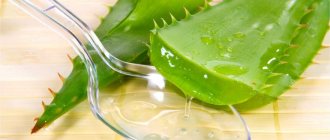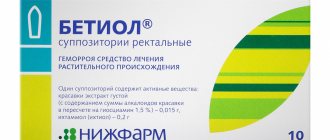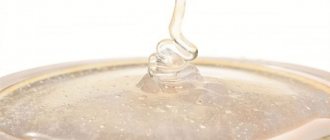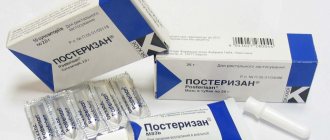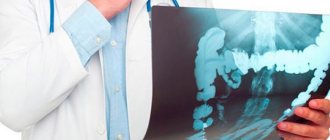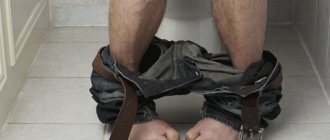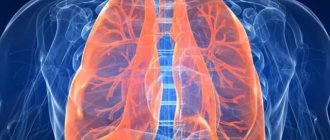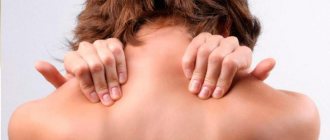Make an appointment Hemorrhoids require timely diagnosis and elimination. Due to myths that surgery is the only treatment and that surgery to remove hemorrhoids is painful, many patients ignore this serious disease. Therefore, it is important to know how hemorrhoids are treated, what surgical and therapeutic methods are used.
Pathology involves the formation of hemorrhoids from the veins around the rectum. The external form is easy to detect on your own; it consists of convex bluish formations around the anus. Accompanied by severe pain and mild bleeding.
The internal form is the formation of hemorrhoids in the rectum. In the initial stages it proceeds hidden. Causes itching and pain during defecation; traces of blood can be found on toilet paper and underwear.
Which method is the most reliable?
Hemorrhoids are a disease that occurs as a result of expansion of the arterial collectors of the rectum.
In addition to a hereditary predisposition to the development of hemorrhoids, the following lead to: ___• stool disorders (constipation, diarrhea), ___• sedentary lifestyle, ___• sedentary work, ___• overweight, ___• heavy physical activity, ___• diseases of the digestive system, ___• pathologies, increasing intra-abdominal pressure (ascites, emphysema, chronic cough, etc.), ___• pregnancy.
The duration of the relapse-free period for hemorrhoids does not depend on the method of eliminating the enlarged node. To prevent the disease from returning, it is necessary to eliminate all factors contributing to the development of pathology - this is a necessary and sufficient condition for maintaining your health.
Do self-medication and folk remedies help in the fight against hemorrhoids?
This disease is serious, since tumor formations can degenerate into oncology. Therefore, self-medication is not only useless, but also absolutely irresponsible. It is important that when symptoms appear, putting aside false shame, contact a specialized specialist. The doctor will be able to make a comprehensive diagnosis, determine the extent of the disease and prescribe effective treatment.
Self-medication and folk remedies for hemorrhoids should not be used at all. They can only be auxiliary methods against the background of medications. But in any case, the use of traditional medicine methods must be approved by the treating specialist.
When is treatment without surgery prescribed?
Acute hemorrhoids
It is possible to cure hemorrhoids without surgery using conservative methods of therapy if we are talking about an exacerbation of the disease. Acute hemorrhoids, as a rule, develop in response to the influence of a resolving factor: ___• errors in diet (spicy food, alcohol), ___• bowel disorders (constipation or diarrhea), ___• heavy physical labor.
Thrombosis of the hemorrhoidal node is clinically manifested in the appearance of a subcutaneous painful formation in the projection of the anus. The pain increases with bowel movements, and in severe cases, with walking, coughing and sneezing.
The pain may radiate down the leg and/or be accompanied by a sensation of a foreign body in the rectum. Another characteristic complaint of patients with acute hemorrhoids is blood on the surface of the stool during bowel movements. In severe cases, serious bleeding may occur.
Pregnancy
Conservative therapy methods are used to treat hemorrhoids during pregnancy. The expansion of hemorrhoidal veins during pregnancy is associated with physiological changes in the body of the expectant mother.
The enlarged uterus puts pressure on the rectum, as a result, blood circulation is disrupted and conditions are created for stagnation of blood in the hemorrhoidal vessels. The situation is aggravated by the hormonal background of pregnant women that provokes chronic constipation.
After the birth of a child, all factors contributing to the development of hemorrhoids are successfully eliminated - intra-abdominal pressure decreases, hormonal levels stabilize, and stool normalizes. All conditions are created to eliminate hemorrhoids using conservative methods.
But, if the process started before pregnancy, the doctor may offer treatment using minimally invasive methods.
If surgery is contraindicated
Conservative therapy in the later stages of development of hemorrhoids is prescribed if the patient’s health condition does not allow radical surgery: ___• acute infection, ___• exacerbation of chronic pathology, ___• acute vascular accidents, ___• general weakened state of health, ___• oncological diseases.
In such cases, conservative therapy successfully solves the following problems: ___• improving the patient’s quality of life (elimination of pain, anal itching and other unpleasant sensations), ___• preventing further development of the disease, ___• combating complications (iron supplements for anemia, etc.) .
However, the prognosis for getting rid of the disease remains questionable, and the risk of complications is quite high. Therefore, proctologists recommend carrying out intervention immediately after the patient’s health condition has stabilized.
Is it possible to massage hemorrhoids?
Massage for this disease is an effective therapeutic procedure; this procedure is carried out as prescribed by a doctor and is indicated if the disease is not in an acute stage. With the help of this effect, you can relieve the patient of constipation and soften the stool. It is also used to stimulate blood supply, eliminate congestion, and increase tissue tone.
It is important that this procedure is carried out by an experienced specialist.
Massage treatment for illness has some contraindications:
- acute form;
- the presence of pathologies of the intestines and stomach;
- the presence of neoplasms in the pelvic area;
- gastrointestinal diseases;
- tuberculosis.
Methods of conservative therapy
Protective regime and non-drug treatment methods
A protective regime and physical procedures are prescribed as part of the general range of measures for conservative treatment of hemorrhoids, as well as in preparation for surgery and during the rehabilitation period after traditional surgery or low-traumatic procedures.
The essence of the protective regime is to eliminate all factors that increase intra-abdominal pressure and contribute to stagnation of blood in the pelvic veins: ___• prohibition of heavy physical labor and prolonged sitting, ___• dosed exercise (walking on level ground), ___• restriction thermal procedures (baths, saunas), ___• combating excess weight, ___• treatment of chronic diseases that aggravate the process (pathologies of the digestive tract, lungs, genitourinary system), ___• refusal to drink alcohol and spicy foods.
To relieve pain, proctologists prescribe baths with potassium permanganate and/or decoctions of medicinal herbs, which have an astringent, antimicrobial and anti-inflammatory effect.
In the subacute period, as well as as an anti-relapse treatment, special complexes of physical therapy are recommended that strengthen the pelvic floor muscles, have a beneficial effect on intestinal motility and restore blood circulation in the pelvis.
Fighting bowel dysfunction
Impaired bowel regularity (constipation, diarrhea, and constipation alternating with diarrhea) is the main cause of exacerbations of hemorrhoids. To stimulate intestinal function, a diet high in fiber (apples, oranges, wholemeal bread, prunes) is recommended. Products that help to consolidate stool are excluded from the diet: ___• potatoes, ___• rice, ___• semolina, ___• pears, ___• quince, ___• pomegranate, ___• wheat products: white bread, pasta.
Also prohibited are foods that irritate the intestines: ___• pickles and smoked meats, ___• spices, onions, garlic, ___• carbonated and alcoholic drinks, ___• strong coffee.
Food should be soft and sufficiently heat-treated (steamed, boiled or baked food). It is recommended to include in the diet a sufficient amount of liquid foods and drinks that will ensure that the body is saturated with water (more than 2 liters per day).
If the diet does not help achieve regular bowel movements, natural laxatives are prescribed, the principle of which is to soften the stool (for example, Forlax).
Drug treatment: suppositories and ointments
Treatment of hemorrhoids without surgery involves the use of medications for external use. For nodes located externally, ointments are prescribed, and for pathological elements located inside the intestine, suppositories are prescribed.
Preparations used for hemorrhoids may contain one or more active ingredients: ___• painkillers, ___• antispasmodics, ___• anti-inflammatory, ___• antimicrobial, ___• blood thinners, ___• strengthening capillaries, ___• astringents, drying agents, etc.
Some patients believe that the more actions a drug performs simultaneously, the better, but a large number of components means an increased risk of side effects and a longer list of contraindications. Therefore, we recommend contacting a proctologist who will select the drug individually based on your specific situation.
Prevention
The best measures to prevent the development and exacerbation of hemorrhoids, according to proctologists, are proper nutrition, improving bowel function, physical therapy, and careful hygiene.
In order for stool to be regular and have optimal consistency, it is necessary to monitor your diet.
- Consume fermented milk products.
- Eat raw vegetables and fruits rich in fiber.
- Eat small meals 5-6 times a day.
- Don't neglect oatmeal and bran bread.
- Take vitamins A, B, C, E, calcium, magnesium.
- Drink enough water, observing the daily norm of 1.5-2 liters.
- Avoid spicy, fried, fatty, smoked, alcohol.
Take laxatives only when absolutely necessary. Use teas and drinks with a laxative effect with caution, otherwise the intestines will literally “forget how” to work.
To strengthen the walls of blood vessels, take a course of phlebotonic drugs twice a year.
Therapeutic exercise and massage are also very useful because they help improve blood circulation and prevent congestion. If you find yourself in the same position for long periods of time, take regular small breaks to walk around or do at least a few squats. There are also special exercises for the anal sphincter and improving bowel function, but during an exacerbation they should not be done.
It is extremely important to carefully observe hygiene: wash your face every day, change your underwear, clean the anus with a damp cloth (without alcohol or fragrances) after each bowel movement.
Minimally invasive methods
Mechanism of action of low-traumatic interventions
Minimally invasive (low-traumatic) treatment methods involve the removal of hemorrhoids without the use of a traditional surgical scalpel. Such procedures are well tolerated by patients, so they are often called the treatment of hemorrhoids without surgery. ___1. Sclerotherapy of hemorrhoids is the introduction of a chemical substance into the lumen of the vessel feeding the node, which burns the inner lining of the vessel. As a result, the pathological element decreases in size. ___2. During coagulation of hemorrhoids, “gluing” of the internal walls of the vein feeding the node occurs under the thermal influence of wave radiation. ___3. Ligation of nodes with latex rings is a mechanical ligation of the feeding arteries.
Thus, the mechanism of action of minimally invasive methods is the same: the pathological element is “disconnected” from the vascular network, becomes necrosis and is excreted from the body with feces.
Advantages and disadvantages of low-impact methods
The advantages of low-traumatic methods of treating hemorrhoids are expressed in the name itself. An injury that is insignificant to the body does not impose increased demands on the patient’s health, so such treatment can be carried out even in old age in patients aggravated by many chronic diseases.
In addition, minimally invasive intervention assumes: ___• outpatient nature (does not require hospitalization), ___• a short recovery period with minor restrictions (prohibition of physical activity and thermal procedures), ___• mild postoperative pain syndrome, easily relieved with standard painkillers.
Minimally invasive methods have one single, but serious drawback : they are not effective for all patients. At stages IV and V of the development of the process (unremovable nodes), as well as in cases of complicated hemorrhoids, it is necessary to resort to traditional surgery to remove hemorrhoids
Are ointments effective against hemorrhoids?
Modern pharmacological companies have developed various drugs designed to combat this disease. They are effective if you undergo comprehensive treatment under the guidance of a specialized specialist. You should not just go to the pharmacy and buy any ointment. Without being a specialist in this field, you will not be able to determine the clinical picture. Therefore, there is no need to talk about the correct choice of ointment or other drug.
Self-medication will not help get rid of the disease, since patients with hemorrhoids need complex therapy. This treatment regimen should be prescribed by an experienced specialist in accordance with the characteristics of the clinical picture of the disease. Hemorrhoids of the first and second stages are highly treatable. You just need to find time to visit a doctor and consult. Today, there are a sufficient number of drugs for the treatment of hemorrhoids. Experienced doctors are able to effectively help every patient facing this problem.
Remember, the sooner you contact a proctologist, the faster and easier the treatment process will be. You should not let the disease progress as this may lead to the need for surgery. Also, hemorrhoids are dangerous because they can degenerate into oncology.
Relief ®
This is a whole list of products of different compositions and with the main active ingredient shark liver oil. Manufacturers for hemorrhoids produce:
• Relief. An additional component of the product is phenylephrine hydrochloride. Belongs to the group of vasoconstrictor substances. The action is aimed at reducing swelling and tension of hemorrhoids.
• Along with shark liver oil, Relief Ultra contains a glucocorticosteroid, a hormonal substance, as a result of which the product has pronounced anti-inflammatory activity.
• In addition to the main component, Relief Advance contains the anesthetic benzocaine. This is a powerful pain reliever.
Suppositories and ointment without a hormonal component are prescribed up to 4 times a day, and the Ultra form - up to 2 times. Before administering the product, it is necessary to cleanse the intestines. It is better to do this naturally and only in exceptional cases use an enema. The course of treatment is determined individually. If glucocorticosteroid hormones are used for hemorrhoids, the use of the medication should not exceed 6 days.
